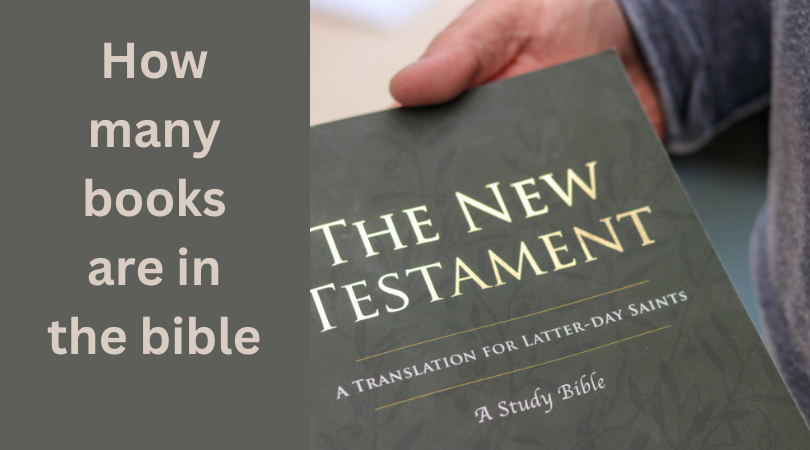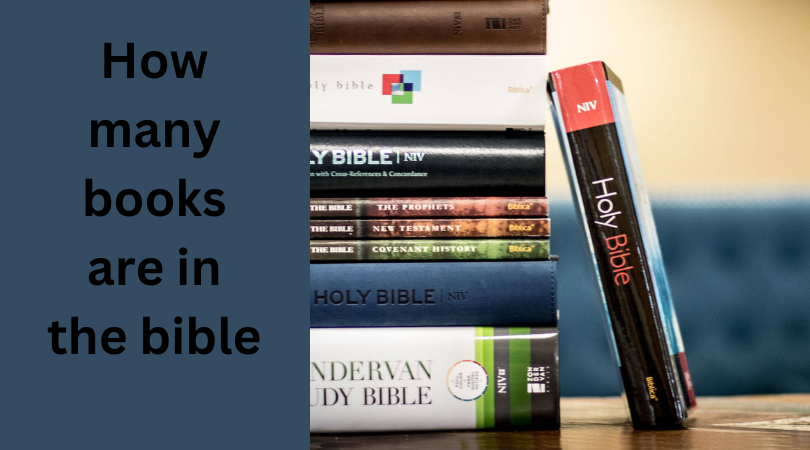History of the Bible
How many books are in the bible. The Bible has a rich and complex history. Its origins date back thousands of years, with various texts written by different authors over centuries. The process of compiling these texts into what we know as the Bible today was gradual and involved numerous individuals and councils.
Old Testament
The Old Testament, also known as the Hebrew Bible, contains a total of 39 books in most Protestant Christian traditions. However, the Catholic and Orthodox Christian Bibles include additional books, bringing the total to 46 in the Catholic and 51 in the Orthodox canons.
These books cover a wide range of genres, including historical narratives, poetry, prophecy, and wisdom literature. They provide insights into the history, culture, and religious beliefs of ancient Israelites.
New Testament

The New Testament consists of 27 books, accepted by all major branches of Christianity. These books focus primarily on the life, teachings, death, and resurrection of Jesus Christ, as well as the early Christian Church and its teachings.
The New Testament includes four Gospels, Acts of the Apostles, various epistles or letters, and the Book of Revelation. Each book offers unique perspectives and insights into the Christian faith and its practices.
Canonical Differences
Despite the widespread acceptance of the 66 books in the Protestant canon. There are differences in the canons recognized by different Christian denominations. The Catholic Church, for example, includes additional books in its canon, known as the Deuterocanonical books, which are not found in Protestant Bibles.
Similarly, the Eastern Orthodox Church recognizes several additional books and passages that are not part of either the Protestant or Catholic canons. These variations reflect historical and theological differences among Christian traditions.
Significance of the Number
The number of books in the Bible holds significant religious and cultural importance for Christians around the world. It serves as a symbol of unity and diversity within the Christian faith, highlighting the richness of its traditions and beliefs.
Moreover, the specific number of books in the Bible has been the subject of theological debates and discussions throughout history. Scholars and theologians have offered various interpretations and perspectives on the significance of these numbers, adding depth to the study of scripture.
Debate and Controversies
Despite the general consensus on the number of books in the Bible. There have been debates and controversies regarding certain texts and their inclusion in the canon. Some ancient texts, such as the Book of Enoch or the Gospel of Thomas, were not included in the final canon and remain a subject of scholarly interest and discussion.
These debates underscore the complexities involved in determining the authoritative status of religious texts and highlight the ongoing evolution of biblical scholarship.
Conclusion
The Bible comprises a diverse collection of books that hold immense significance for Christians worldwide. Understanding the number of books in the Bible. As well as the history and composition of these texts, is essential for anyone interested in exploring the religious and cultural heritage of Christianity.
FAQs
How many books are in the Protestant Bible?
The Protestant Bible contains 66 books, comprising 39 in the Old Testament and 27 in the New Testament.
Why do Catholic and Orthodox Bibles include additional books?
Catholic and Orthodox Bibles include additional books, known as the Deuterocanonical books, which are considered canonical by these traditions but not by Protestants.
What are some examples of Deuterocanonical books?
Examples of Deuterocanonical books include Tobit, Judith, Wisdom, Sirach, Baruch, and additions to Esther and Daniel.
Why are there differences in the biblical canon among Christian denominations?
Differences in the biblical canon reflect historical, cultural, and theological factors unique to each Christian tradition.
============

